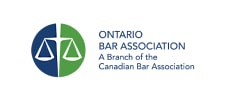Loss of Canadian Citizenship and Citizenship Questionnaires

The rules of Canadian citizenship have recently changed and it has caused a considerable amount of confusion. Many people have been left wondering if their citizenship could be revoked and if so, what infraction or misstep could cause it to happen.
The most common way Canadian citizens lose their citizenship is on the basis of fraud in the process of obtaining their citizenship.
A person born in Canada after February 15, 1977, cannot lose their citizenship for fraud, unless the fraud relates to whether they were actually born in Canada.
However, citizens who initially immigrated to Canada as a permanent residents then subsequently obtained citizenship after staying in Canada for the required residency period may be subject to citizenship revocation for fraud on various grounds. Any fraud or misrepresentation during the process of immigrating to Canada or the process of applying for citizenship can be grounds to revoke citizenship, including what might seem to be no more than an innocent error when filling out the application forms.
Residence Questionnaire
Permanent residents who are applying for citizenship will sometimes be required to complete a Residency Questionnaire if the citizenship authorities have any doubts as to whether they are meeting the required residency period in Canada to qualify for Canadian citizenship. If there is an untruth suspected or it appears that your residency requirements have not been met for your application for citizenship or permanent residency, you may be required to complete a Residence Questionnaire.
The questionnaire can be confusing, adds significant waiting time to the processing of your application, and may necessitate the services of a citizenship lawyer.
Here are some of the issues that could cause you to receive a Residence Questionnaire:
- Not being able to prove your declared time spent in Canada prior to applying to become a permanent resident.
- Not being able to provide a clear explanation of where you lived for the past four years.
- Having a previous citizenship application that was:
- Denied due to the residency requirement.
- Abandoned or withdrawn by you.
- Having issues with your passport, such as:
- Stamps on your passport that denote trips outside of Canada but were not declared on your application.
- Stamps on your passport that indicate you left the country while your application was in process.
- Including a new passport in your application but not being able to produce the prior one.
- Having a new passport that was issued outside of Canada.
- Not bringing your passport with you when it was required for a citizenship test or documentation examination.
- Traveling outside of Canada. The IRCC (Immigration, Refugees, and Citizenship Canada) does set forth some specific guidelines pertaining to travel abroad when you’re in the citizenship application process. You may receive a Residence Questionnaire if:
- You have traveled outside of Canada for more than 365 days in the previous four years.
- The IRCC has reason to believe that you aren’t actually residing in Canada.
- You have tried to relinquish your permanent residence status while you were living in Canada.
- Issues with proof of employment. This can include:
- Not being able to contact your employer.
- You have extended periods of unemployment.
- Discrepancies with your citizenship application. Some situations will act as a red flag to the IRCC. They will be watching for:
- Numerous applicants using the same contact information.
- The date on the application being inconsistent with the time you were actually in the country.
The system can be tricky. If you have been contacted in regards to your citizenship due to any of these issues, you may need the help of a citizenship lawyer. Seeking professional advice in these situations is recommended in order to avoid penalties later in the process, including the potential of citizenship revocation if the forms have not been completed accurately.



















